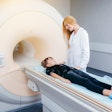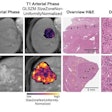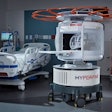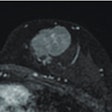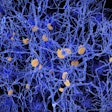The U.S. Food and Drug Administration has issued a health advisory regarding MRI contrast agents containing gadolinium after two dozen cases of a rare disease that developed in European patients following administration of a gadolinium-based agent.
The FDA said it is evaluating safety information about gadolinium in relation to a disease known as nephrogenic systemic fibrosis or nephrogenic fibrosing dermopathy (NSF/NFD) that occurs in patients with kidney failure. "New reports have identified a possible link between NSF/NFD and exposure to gadolinium-containing contrast agents used at high doses for a procedure called magnetic resonance angiography (MRA)," the FDA stated in its health advisory.
The FDA said it has learned of 25 cases of NSF/NFD in patients with kidney failure who received Omniscan (GE Healthcare, Chalfont St. Giles, U.K.), a gadolinium-based agent, as part of an MRA exam. The FDA said it is actively investigating whether exposure to a gadolinium-based contrast agent is associated with the development of the disease.
While the FDA conducts its investigation, it made the following recommendations to healthcare providers and patients:
Gadolinium-based contrast agents, especially at high doses, should only be used "if clearly necessary in patients with advanced kidney failure (those currently requiring dialysis or with a glomerular filtration rate (GFR) = 15 cc/min or less)."
Healthcare providers "may want to institute prompt dialysis in patients with advanced kidney dysfunction who receive a gadolinium contrast MRA. Although there are no data to determine the utility of dialysis to prevent or treat NSF/NSD in patients with decreased kidney function, average excretory rates of gadolinium are 78%, 96%, and 99% in the first to third hemodialysis sessions, respectively."
The agency said that there are five gadolinium-containing contrast agents approved for use with MRI: Omniscan, OptiMark (Mallinckrodt, Hazelwood, MO), Magnevist (Berlex, Montville, NJ), ProHance (Bracco Diagnostics, Princeton, NJ), and MultiHance (Bracco). The agency noted that these agents are not approved for use with MRA, and the dose of gadolinium-containing agents given to patients undergoing MRA is often up to three times the approved dose for MRI.
The full text of the FDA's health advisory is available by clicking here.
By AuntMinnie.com staff writers
June 15, 2006
Related Reading
Assessing patient risk will help prevent contrast-induced nephropathy, June 15, 2006
Firm raises eyebrows with push to enforce antikidney-failure patent, June 13, 2006
GE investigates Omniscan cases, June 12, 2006
Part II: Palliative steps prevent contrast-induced nephropathy, September 20, 2005
Part I: Identifying patients at risk of contrast-induced nephropathy, September 13, 2005
Copyright © 2006 AuntMinnie.com

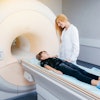
.fFmgij6Hin.png?auto=compress%2Cformat&fit=crop&h=100&q=70&w=100)


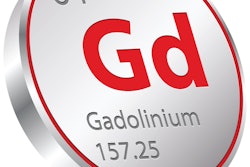

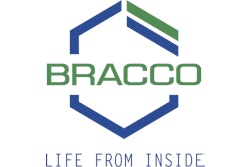
.fFmgij6Hin.png?auto=compress%2Cformat&fit=crop&h=167&q=70&w=250)
